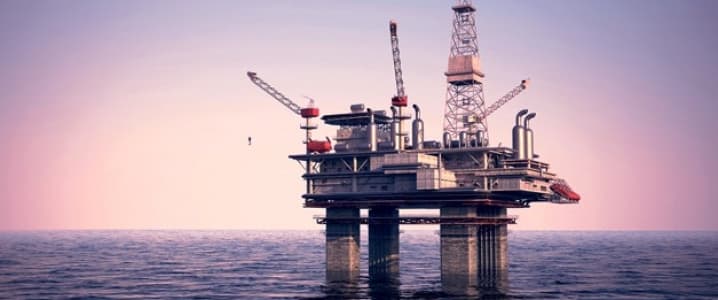Iraq will be using offshore oil and gas production ventures to boost the war-torn country’s energy reserves, Oil Minister Jabar al-Luaibi’s comments told the press last week, setting off concerns regarding the geopolitical future of the Persian Gulf and its contested fossil fuel wealth.
The Organization of Petroleum Exporting Countries’ second-largest producer is nowhere near production in any offshore oil prospect so far. Luaibi only said he had given “guidance to the Oil Exploration Company about the importance of exploring territorial waters to assess the hydrocarbon reserves and to boost Iraq’s capacity.”
Last week, Baghdad announced a jump in crude inventories from 143 billion barrels to 153 billion barrels, just as the country announced a one percent increase in exports for the month of February, which was caused by activity in Kurdistan – a region over which the central government has little control. Data compiled by Bloomberg show that the Kurdistan Regional Government (KRG) upped its exports by nine percent last month.
Currently, Iraq’s only experience in working offshore is through its twin loading docks off the coast of Basra, named Basra and Khor al-Amaya, which received capacity upgrades less than a decade ago under the Iraqi Crude Oil Expansion Project. The initiative allowed for oil exports from Iraq to increase from 1.8 million barrels per day to 4.5 million via a new underwater crude pipeline. Related: OPEC Sends Mixed Signals About Output Cut Extension
A quick look at Iraq’s geography will explain why the country lags behind in offshore drilling projects. Unlike neighboring Iran, which enjoys 2,440 kilometers of coastline between its borders on the Caspian Sea and the Persian Gulf, Iraq’s total seashores amount to just 58 km.
Still, just those few dozen kilometers could be a boon to the Middle Eastern country’s oil production. The Persian Gulf has proven itself to be a reliable host of easy-to-extract fossil fuel reserves and its largest neighbors – Saudi Arabia, Iraq and Iran – are the top three producers of OPEC.
The most notable natural gas formation in the gulf, the South Pars field, is in joint custody between rivals Qatar and Iran. Tehran’s side of the 1800-trillion-cubic-feet find will enter into production by the end of March under the oversight of France’s Total, according to Iranian Oil Minister Bijan Zanganeh.
South Pars is the largest natural gas field in the world, so competition regarding its treasures is strong between Qatar and Iran.
“If they (Total) give our information to the Qataris, they will have to pay heavy damages,” Zanganeh told Fars news agency in February, adding in jest that “such a thing is very unlikely to happen.”
Iraq’s new interest in offshore drilling remains vague. Al-Luaibi still needs to announce a timeline for a tender process for the “guidance” to become a nationally adopted plan. And the financials of funding an exploratory mission anywhere on Earth are just now looking profitable after the 2014 oil price crash. Related: Oil Prices Hold Steady Ahead Of Inventory Data
Brent barrels have jumped up in value after OPEC’s recent agreement, along with 11 non-OPEC countries, to cut output by 1.8 million bpd. Iraq has been the focus of worry regarding the future of the deal because of its dependence on oil revenues and the costs of keeping the nation’s peace. After much opposition, Baghdad pledged to reduce its daily output by 210,000 barrels per day in November, but it has not yet reached the mark.
The addition of new offshore fields to Iraq’s portfolio will provide a more complete picture of the total oil and gas reserves available in the Persian Gulf. As an inexperienced player in the gulf’s oil geopolitics, it remains to be seen how many of the new finds will remain in Baghdad’s control by the time the reserves are divided up and drilling begins.
ADVERTISEMENT
By Zainab Calcuttawala for Oilprice.com
More Top Reads From Oilprice.com:
- Will Exxon’s New $20 Billion Strategy Pay Off?
- Oil Majors To Boost Production As IEA Warns Of Supply Deficit
- Goldman Sachs Sees ‘’Long-term’’ Oil Prices Below $60


















